Table of Contents
- Introduction
- Why is soil preparation important before the rainy season?
- Step-by-step guide to preparing your soil
- Best practices for healthy soil during the rainy season
- Choosing the right plants for rainy season
- Where to find quality plants in Indore?
- Conclusion
- FAQs
Introduction
Rainy season is an important factor in garden success. Pre-monsoon soil preparation appropriately makes the roots of plants strong. Healthy soil holds water, avoids erosion from taking place, and nourishes roots. Most gardeners in Indore are concerned about how they need to prepare their soil.
Moreover, the blog provides easy, efficient methods to get your soil ready for the rainy season. If you are cultivating vegetables, flowers, or seasonal crops in Indore, this guide will be useful. Even selecting the finest plant nursery in Indore can make your gardening aspirations a reality.
Why is soil preparation important before the rainy season?
Soil preparation during the pre-rainy season is most critical. It prevents waterlogging and flooding of the garden. If soil is not prepared and is poorly prepared, it will be hard and compacted. Hard and compacted soil will hinder the roots of plants from growing deep and absorbing nutrients. Loose soil permits water and air to pass through the roots easily. Furthermore, this keeps the plants healthy and robust. Pests and diseases also hit plants more often in rainy seasons.However, compost and mulch may be introduced into the soil so that they do not occur, Compost acts as fertilizer, while mulch helps maintain the water content of the soil and covers it. Proper soil preparation is then the magic to a green and healthy garden on rainy days.
Step-by-step guide to preparing your soil
- Clear out old plants
Begin by clearing dead leaves, dry stalks, extra roots, and weeds from your garden soil. They may have terrible pests and disease-causing microorganisms inside them. Additionally, they will likely infect fresh plants if they are left behind. Compacting your soil space makes room for your fresh plants to grow in a healthy condition. It also makes your soil easy to work with.
- Loosen the Soil
Until the ground thoroughly with a garden fork, shovel, or tiller. It loosens heavy soil to enhance air and water flow. It becomes simpler for roots to grow and access vital nutrients. Loose soil also gives plants more chances to resist heavy rain.
- Add Organic Matter
Add leaf mold, cow manure, or compost. Organic matter makes your soil rich, and it gives strength to your soil. Organic matter keeps your soil from hardening due to excessive rain.
- Test Soil pH
Test the soil pH using a do-it-yourself test. Most garden vegetables like a soil pH ranging from 6 to 7. Your plants cannot use nutrients if your pH is off. Increase pH by using lime; decrease pH by using sulfur.
- Mulch the Soil
Mulch 2-3 inches across your ground. Mulch prevents too much rain and erosion from reaching your ground. Mulch prevents water from remaining in the ground and keeps away germinating weeds. Therefore, organic mulch like straw or dry leaves also breaks down even more with time and nourishes your ground.
Best practices for healthy soil during the rainy season
- Avoid walking on soggy ground in a move to prevent compaction.
- Used raised beds in an attempt to enhance drainage wherever ground is waterlogged.
- Watering plants early in the day to retard the growth of fungi.
- Crop rotation for maintaining fertility of soil and freedom from pests.
- Organic matter is added periodically to maintain the fertility of soil.
Therefore, follow these guidelines to make your soil rain-friendly. Seasonal plants of Indore are bought by gardeners in bulk in terms of quantity from established sources to supplement their activities of soil preparation.
Choosing the right plants for rainy season
None of the plants grow well under wet and rainy conditions. There are certain plants that will rot or get spoiled when water logging occurs. One must choose the plants that can tolerate moisture. Taro, water spinach, amaranth, and rain lilies are some plants that can be employed for the monsoon season.
Moreover, these types of plants grow well when the earth remains moist and not easily spoiled under heavy rains. They are also easy to maintain during the monsoon season. If you’re looking for healthy plants, try buying from an online plant nursery in Indore. A good online nursery offers quality plants and doorstep delivery, making it simple and stress-free to shop for your garden during the rainy season.
Where to find quality plants in Indore?
Indore has many plant nurseries, but not all offer the same quality. The best Indore plant nursery provides you with healthy and disease-free plants that grow strong. They also assist you in the selection of the perfect seasonal plants in Indore and provide you with tips on soil maintenance. The tips turn out to be very helpful, particularly during the rainy season.
Additionally, if you would rather stay indoors, then you can shop from an online Indore plant nursery. It is safe and convenient to buy plants without stepping out of your house. You may look at types of plants, read reviews, and order. It makes your garden green, healthy, and lovely throughout the year, especially on rainy days.
Conclusion
A properly prepared soil is the recipe for a healthy and strong garden on rainy days. Just do the following: remove garbage, break the soil, and add manure. However, mulch to insulate the soil from massive rains. Plant water-tolerant plants for the optimum outcome. Even purchase plants from the best plant nursery in Indore or a real online plant nursery in Indore. This will ensure your garden remains healthy and productive during rainy days. Begin preparing your soil now to enjoy a gorgeous garden this rainy season!
FAQs
Q1: How frequently should you add compost to the ground?
Use compost before the rainy season and again later mid-season.
Q2: Are vegetables planted during the rainy season?
Yes, but select varieties that can handle water and soggy soil.
Q3: Is mulching required for rainy season gardening?
Yes! Mulch keeps the soil always moist and shields it from erosion.a

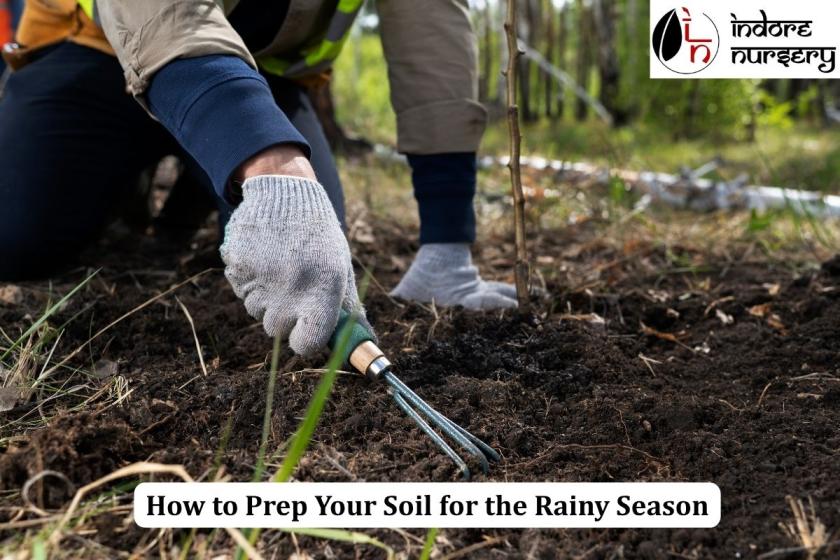



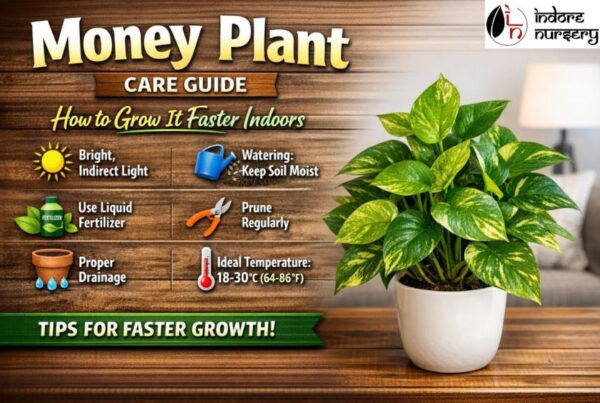
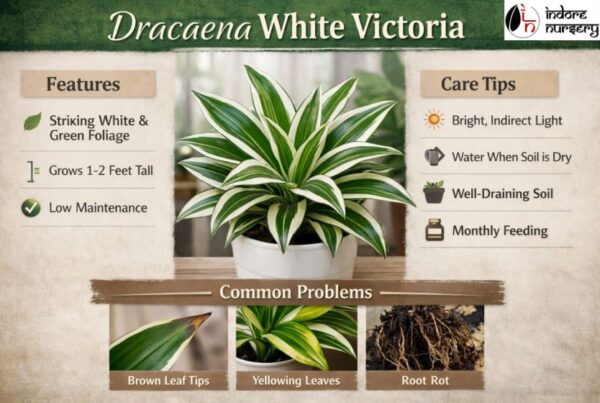
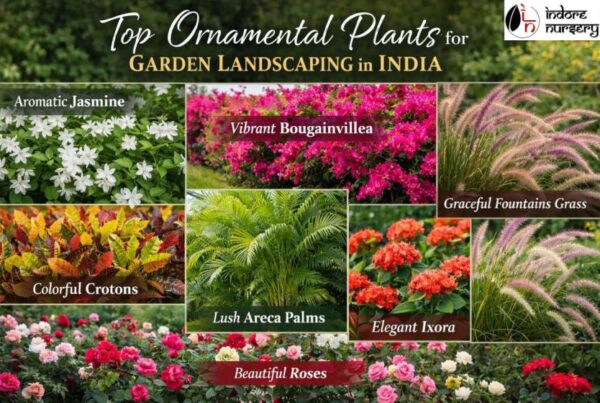

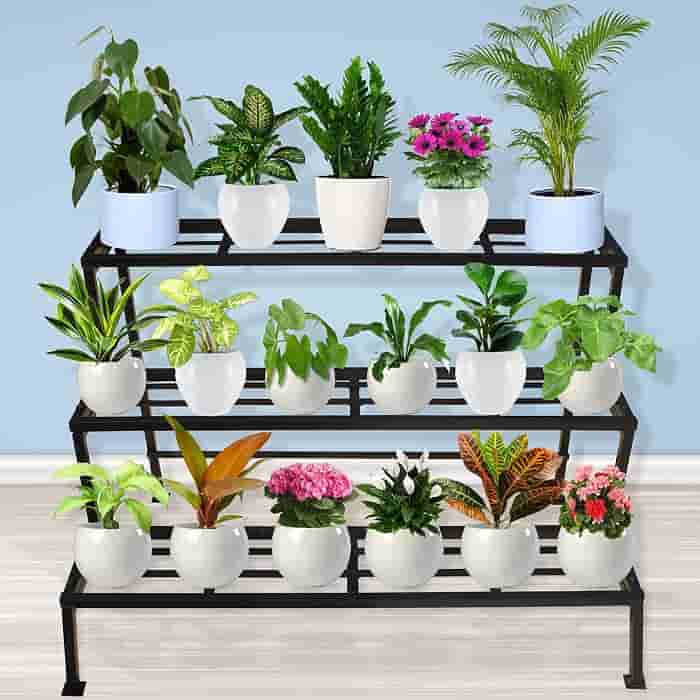
Recent Comments